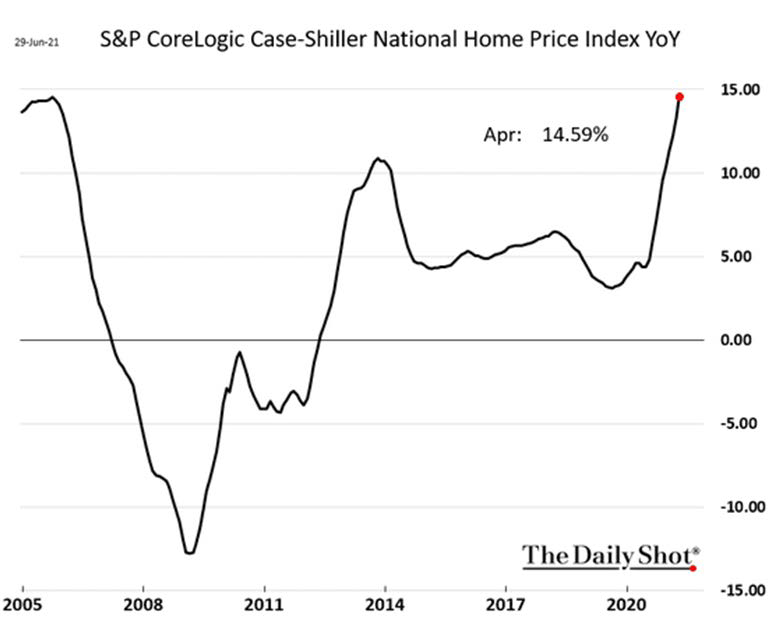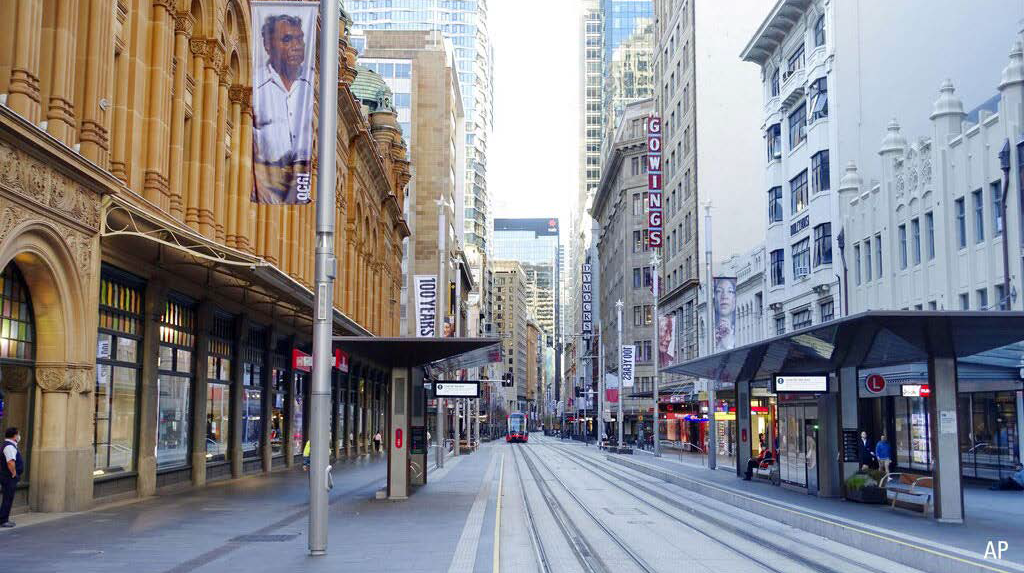Veteran stock picker Hamish Douglas (of Magellan) sees no shortage of the risks including that covid-19 mutations could render current vaccines ineffective.
The spread of the Delta variant from Australia’s most populous city to other states hasn’t worried the equity market so far, but anyone watching the NSW chief health officer on Friday morning declare a ‘national emergency’ saw the economic and social impacts of this highly transmissible strain.
While the US was applauded for the pace of its vaccine rollout, new infections have more than doubled in the past month and the vaccination rate has slowed. Supply certainly isn’t a problem.
Closer to home, Malaysia is an indefinite lockdown are case numbers surge. Even Vietnam and Singapore, lauded for their initial handling of the pandemic, are now seeing significant outbreaks of Delta. The Aussie dollar has sold-off, and concerns are rising in bond markets, resulting in falling yields.
One person worried is Magellan’s Hamish Douglass, describing the hard lockdowns in Sydney and Melbourne as a “wake-up call”. Asked whether he believes an investment day of reckoning is around the corner; Douglass said things could go either way but that the risks of a material market correction are “hiding in plain sight”.
“We are not over [the virus],” he told shareholders at a digital event on Tuesday. “We were all going to the football and the pub. We all thought this was over.
“The risk is we get an escaped mutant from this virus, one that evades the vaccines. We’ve seen so many mutations happening this Delta one’s frightening and the speed it can spread.
“The vaccines still seem to be effective against death, but that might not always be the case.”
It’s not just developed markets at risk but emerging, Douglass says.
“They’re particularly vulnerable with what’s going on in the pandemic and we could really see a market correction.”
Markets aren’t pricing in mutation risk because of the recorded effectiveness of the vaccine against death, Douglass adds. But he says the risks are real and foreseeable.
“I’m not saying it’s gonna happen. Actually I’ve no idea where it’s going to happen, but the probabilities of [an escaped mutation] happening are increasing by the day.”
Another risk playing on his mind – the big ‘I’ word: Inflation. Douglass is squarely in the transitory camp, believing that monetary policy is likely to be tightened gradually and that sky-high prices for used cars and timber are driven by blockages in supply chains. However, he acknowledged that if there was sustained inflation, there could be a ‘U-turn’ in monetary policy, particularly in the United States.
“If that was to happen in the next 12 months or so, all bets are off for the currencies that have high equity markets,” he says. “We will see higher interest rates and a recession”.
Douglass’ biggest concern is the increasing cost of shelter – housing and rent – globally which he acknowledges are a material part of inflation statistics. “We’re watching that component incredible closely at the moment”.

Toil and trouble
The top of a market cycle brings asset bubbles and Douglass sees them all over the place, including the resurgence of speculative grade credit or junk bonds. Corporations have taken advantage of low interest rates to lever up, pulling down their credit ratings in the process. These same low rates have driven investors to this high-risk credit in search for yield.
“These assets are at an enormous scale,” Douglass says. “They’re across the financial system, they’re very widely held and if we see inflation and the central banks force the world into a recession, there would be a lot of consequences in these asset classes.”
The other asset in bubble territory is Bitcoin. Douglass described the cryptocurrency as “one of the greatest mass delusions in modern history”, noting the cult-like following it had gathered around the world.
“I have to say it is one of the greatest irrationalities that I’ve seen in a very very long period,” he says. “The scale that is behind it – there are millions and millions of people participating.
“There will be many people who disagree because people in a cult don’t like someone pointing out the Emperor may have no clothes. I think it’s inevitable that it’ll crash to zero.”
If these bubbles do burst, Douglass is fearful of the follow-on effect to investor confidence – a “contagion effect”.

It’s hard to know what to make of all this. Warnings of market corrections have been around for years, but they seem to be louder and more prominent. Investors have been getting drunk on wave after wave of government stimulus, sending markets to all-time highs and valuing loss making companies in the billions, but it’s hard to deny the warning signs on the horizon. It was bizarre hearing the words “meme stocks” come out of the mouth of one of Australia’s most successful investors, but a reminder of just how much the world has changed in a year.
Douglass’s advice for investors: this isn’t the time to get overconfident.
“Are we about to have a material market correction? The answer if I’m very honest with you is, I don’t know. It’s just really hard to judge what’s going to happen there. You could bet in either direction,” he says.
“You have to have a very balanced approach here knowing that the markets could continue to be strong, but there’s major risk out there. I think you want to be somewhat conservative here if some of the downside events happen.”
Magellan Global’s portfolio is deliberately weighted towards defensive assets for risk management. By Douglass’ own admission, this is what caused them to miss the cyclical November rally. He remains confident in his current investment approach and the companies in the global portfolio.
Article was reproduced from Morningstar, written by Emma Rapaport on the 23rd July 2021.

Recent Comments